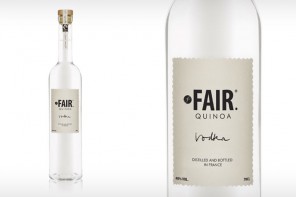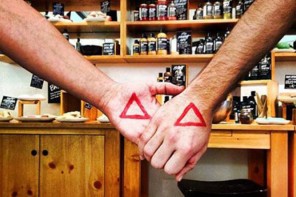The materialistic world of high fashion may seem inherently at odds with the altruistic fight to save the planet.
Opulence, exclusivity and conspicuous consumption are not exactly the hallmarks of an environmental movement. But for designers like Peter Ingwersen from Denmark, a new trend has been developing in the fashion industry – and he says it’s being driven by consumers.
“Ten years ago it was enough to buy the latest ‘it’ bag – that’s not enough anymore,” he said at a recent fashion show for ecologically-minded designers in Switzerland.
“When you buy the latest ‘it’ bag you also want to know how it is produced. That is the biggest change that we’ve seen in our business since the hem lengths went below the knee.”
Conventional cotton cultivation can be damaging to the environment, because of its heavy use of pesticides and fertilizers. For example, the chemical Endosulfan is widely used by cotton growers today, despite evidence of long-term health and environmental damages that have prompted scientists to consider blacklisting the agent as a persistent organic pollutant (POP) under the Stockholm Convention, a 166-member treaty designed to protect human health and the environment from chemicals.
Peter Ingwersen says he entered the business of finding sustainable alternatives for fabrics five years ago when he founded the fashion label Noir. He now claims to be working with some 16,000 farmers in Africa, who grow organic and fair-trade cotton.
Growing market
He is one of a number of designers who are cashing in on a growing niche. The overall market for organic textiles – for everything from curtains to socks – has exploded. Today it’s worth nearly 3.9 billion euros, where it was worth less than 365 million euros a year in 2005.
Indeed, the United Nations Conference on Trade and Development (UNCTAD) estimates the trade in eco-fashion alone to be worth up to 145 million euros a year. “It is an increasingly significant chunk of the market,” said Lucas Assuncao, coordinator of UNCTAD’s BioTrade initiative.
The wares of 50 like-minded designers were on display at the ecochic fashion show in Geneva in January.
“We need to be sensitive to the environment in everything we do,” said Christian Dean, whose environmental charity Green2Greener co-hosted the event alongside UNCTAD to help draw attention to the UN’s 2010 year of biodiversity.
Pencil-thin models strutted the catwalks in stylish garments reminiscent of scenes from a fashion week in London or Milan. But the couture was made from fibres ranging from organic cotton to bamboo, pineapple and even paper.
Sarah Ratty has been in the business for 20 years. She is currently the head of a brand called Ciel. Like Ingwersen, her goal is to show that sustainable fashion can be beautiful too.
Lose the granola
Her modern collection uses a diverse range of natural or recycled products. “There are a lot of great green innovations, which are working within natural fabrics as well as synthetics,” she said.
Lucas Assuncao from UNCTAD, which co-sponsored the event, said there were many opportunities in the fashion industry to create win-win situations as well, and cited a problem with the overpopulation of a type of reptile in Bolivia, called the yacare.
“It so happens that in some parts of Bolivia this over population of yacares is detrimental to human life. So there is a real claim there to sustainably manage the yacare population, which means killing them. It so happens that the skin is very valuable for the shoe industry in Italy, for example. So there is a win-win opportunity,” Assuncao said.
Despite the can-do attitude, eco-designers like Ingwersen and Ratty are battling perceptions that ‘sustainable’ spells ‘granola.’
Ingwersen warns that the industry as a whole will have to take the concept seriously if it isn’t to go the way of last year’s season.
“If we don’t inspire our fellow designers and the end user and the fashion media, then this is going to die within the next two or three years and it will just have been a really, really fast fashion fad.”
Source: Deutsche Welle
The liveeco team






